The season’s changing, and you need a reliable piece of equipment. Maybe it’s a grain cart, auger, or hopper bottom trailer. Like many others, your first stop is probably Facebook Marketplace.
You’ve been scrolling for hours, maybe days. You see dozens of listings, but the prices are all over the map. One tractor is listed for $150,000, but you remember seeing a similar model with fewer hours sell at a recent auction for under $115,000. What gives?
You’re not alone in feeling that frustration. The digital marketplace has opened up more buying options than ever, but also more confusion. In this post, we’ll break down the key differences between shopping on a social platform like Facebook Marketplace and using a dedicated auction site. The goal isn’t to crown a winner, but to help you make smarter buying and selling decisions based on what you really need.
Marketplace vs. Auction: A Head-to-Head Comparison
1. Price & Value Discovery
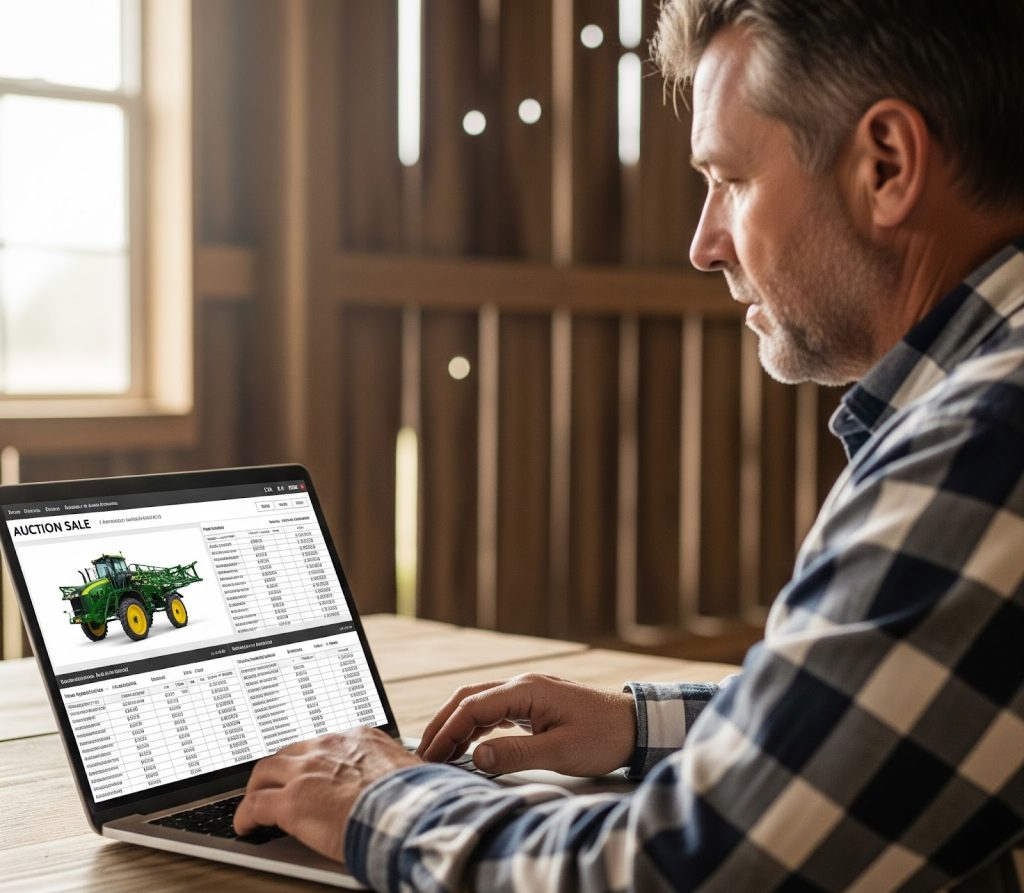
This is where the biggest differences show up.
- Facebook Marketplace runs on seller-defined pricing. A seller picks a number based on what they want, what they paid, what they owe, or sometimes just sentimentality. It’s a starting point for back-and-forth negotiation. You’ll often see prices 30–50% above actual market value.
- Web Auction Platforms create true market price discovery. Buyers compete in real-time, under a clear deadline, to determine exactly what an item is worth on that day. It’s not about what the seller hopes; it’s about what the market decides.
2. Audience & Reach
- Facebook Marketplace is hyper-local. Most views come from buyers within a short radius. That might work for smaller items, but if your perfect buyer is two states away, they may never even see the listing.
- Auction Sites have national (and often international) reach, connecting your Nebraska combine with farmers in Texas, Ohio, or Alberta. That larger pool = more competition = better results.
3. Time, Effort & Process
- On Facebook, you wear every hat: photographer, writer, negotiator, scheduler, and payment handler. You’re also fielding the dreaded “Still available?” messages. As a buyer, you’re left to vet the machine yourself and figure out transportation and payment logistics on your own.
- On auction platforms, you’re hiring pros. They help with photos, specs, marketing, secure payments, and sometimes even offer inspection and appraisal services. On most sites, you pay a seller’s commission in exchange for expertise, trust, and time savings.
4. Trust & Transparency
Buyer Tips: Research Is Your Power Tool
Facebook can be a great place to find smaller items, or the occasional diamond in the rough, but always do your homework.
Pro Tip: Use auction site “sold” data to benchmark prices before messaging a seller. If a sprayer is listed for $150,000 and five recent auction sales for similar units came in at $115K–$130K, you’re in a far better position to negotiate.
Seller Tips: Know What You Want
Ask yourself: Am I after the highest sticker price—or the best net price in a reasonable timeframe?
A “free” Facebook listing can turn into:
- Hours managing messages
- Risky in-person meetings
- Weeks of depreciation while your equipment sits idle
An auction gives you a guaranteed sale date, national exposure, secure payment, and a better shot at true market value.
A Quick Note on Transport
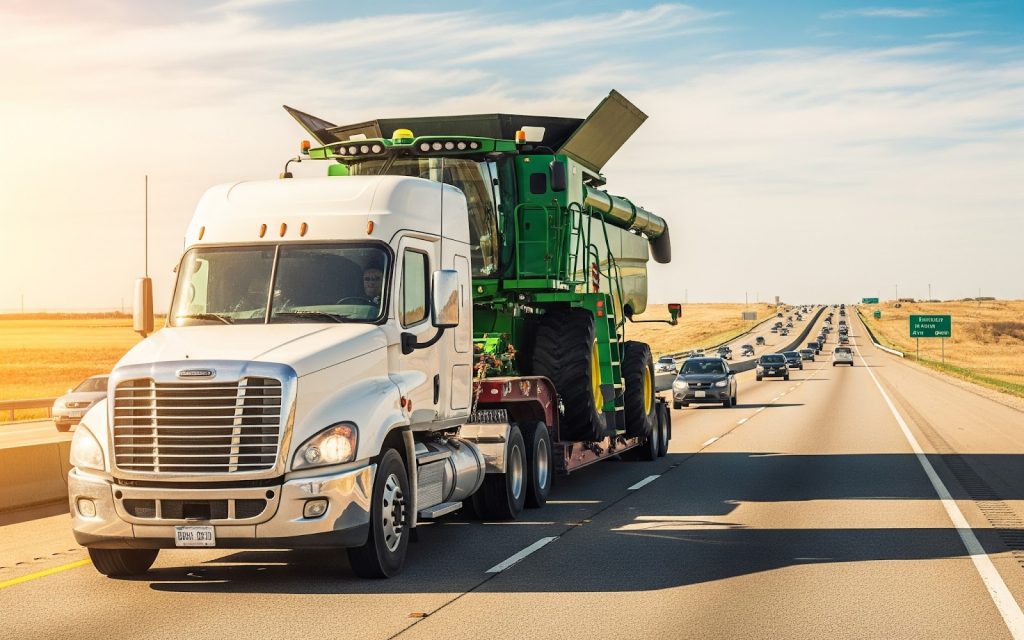
Large equipment buyers are often out-of-state. Most auction companies either offer transportation coordination directly or have trusted third-party haulers they recommend. If you’re listing a large item, this added service can be a major advantage, and another reason auctions often outperform local listings in both speed and final price.
Conclusion: Pick the Right Tool for the Job
- Facebook Marketplace is like a digital swap meet. Great for smaller, local items.
- Online auctions are high-powered sales engines designed to maximize value and minimize hassle.
Know the difference, play to the strengths, and use the platform that fits your goals—not just the one that feels familiar.
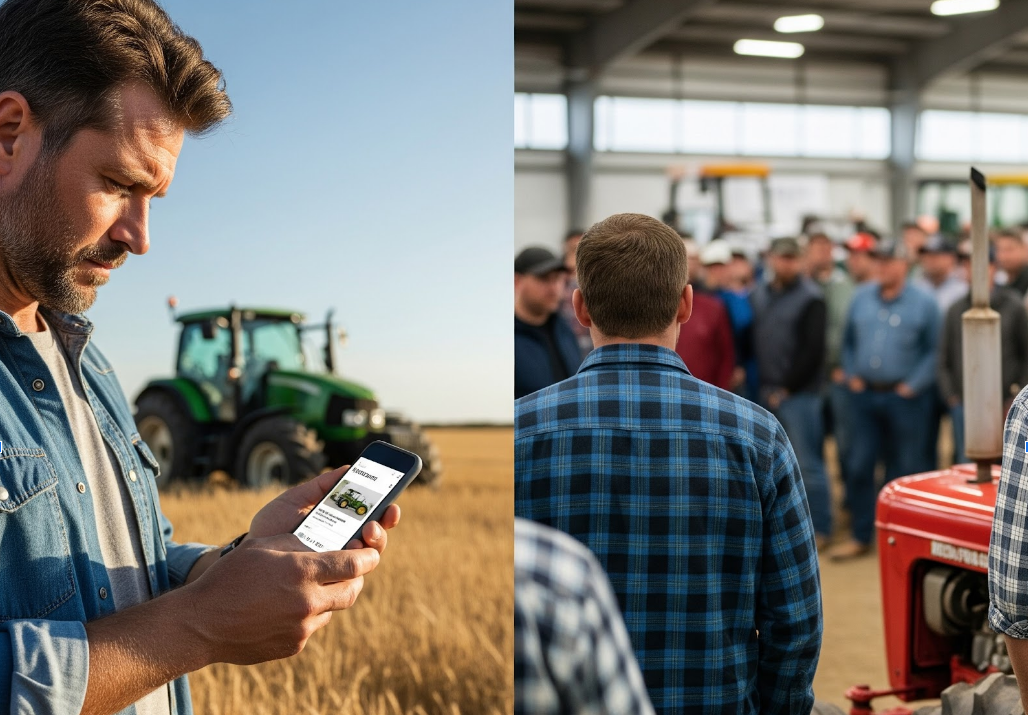
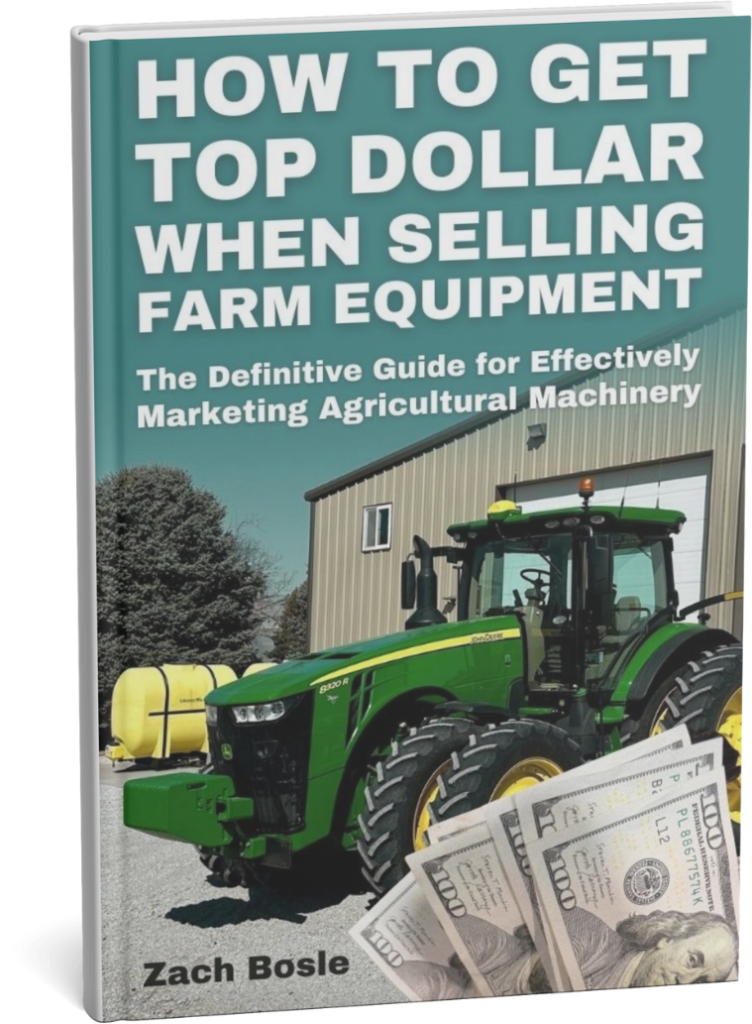

Leave a Reply